So we’ve finally reached the big day! On this day 1820, exactly two hundred years ago today, in Thornton, Bradford, Maria Brontë gave birth to her sixth child – Anne Brontë!
In this blog over the years, and in my books ‘In Search Of Anne Brontë‘ and my new book ‘Crave The Rose: Anne Brontë At 200‘ I’ve said a lot about Anne and her family, but there’s still a lot more to say. On this special day I wanted to keep the message simple, and explain why Anne means so much to me. It boils down to four areas: she was a brilliant novelist, she was a brilliant poet, she was a brilliant thinker, she was a brilliant human being.
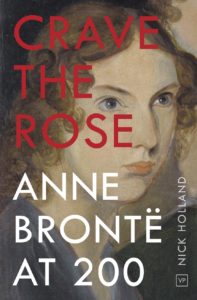
Anne Brontë As A Novelist
Anne wrote just two novels, but I think Agnes Grey and The Tenant Of Wildfell Hall deserve to stand alongside the great novels by her sisters Charlotte and Emily, or by anyone else. The Tenant Of Wildfell Hall usually takes the majority of the plaudits, and it is a fantastic book unlike any other in the Brontë oeuvre, but I have a particular soft spot for Anne’s debut novel Agnes Grey. It tells the tale of a young woman who becomes a governess to alleviate the financial burden on her family; she serves with two very different families, and falls in love with an assistant curate. It’s not hard to see that fact is mingling with fiction here, and that’s what makes this book so very moving to me.
It’s not purely autobiographical as such, but I think we see lots of episodes that Anne borrows from real life (particularly with the horrible Bloomfield children based upon the Inghams of Mirfield). Above all, I think it’s clear that Agnes is actually a portrait of Anne herself and that Reverend Weston is a portrait of the Reverend Weightman she loved. By the time Anne wrote Agnes Grey, William Weightman was tragically no more, and this gave Anne the freedom to express how she truly felt about him, and what her dreams had been. Anne even tells us that this is what she is doing, and how she intends doing it, in the very first paragraph of her novel:
‘The world may judge for itself. Shielded by my own obscurity, and by the lapse of years, and a few fictitious names, I do not fear to venture; and will candidly lay before the public what I would not disclose to the most intimate friend.’
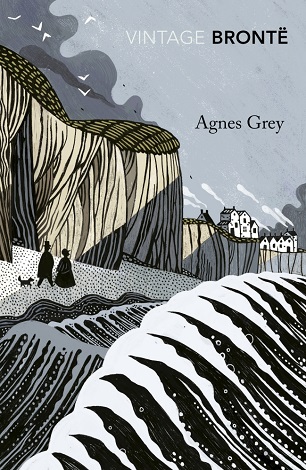
There is no ostentation in the book, not a word out of place. Irish novelist George Moore wrote of it: ‘Agnes Grey is the most perfect prose narrative in English literature… a narrative simple and beautiful as a muslin dress… We know that we are reading a masterpiece. Nothing short of genius could have set them before us so plainly and yet with restraint… It is the one story in English literature in which style, characters and subject are in perfect keeping.’
I completely agree, and in both Agnes Grey and The Tenant Of Wildfell Hall Anne showed us that she is a novelist of genius, who produced books which are as readable and enjoyable today as they’ve ever been.
Anne Brontë As A Poet
Emily Brontë is usually thought of as the foremost Brontë poet, understandably as she’s one of the greatest poets of her century. Anne is a fabulous poet too, however, and her verse covers a wide range of subjects and styles – from hymns such as ‘My God! Oh let me call thee mine!’ (that she also set to music), to nature poems such as ‘Lines Composed In A Wood On A Windy Day’, poems of adventure set in Gondal such as ‘Lines Inscribed In The Wall Of A Dungeon’, and, particularly powerfully, poems of love and loss. Anne wrote a series of such poems in the months and years after William Weightman’s death. Perhaps my favourite of all Anne’s poems, however, is this simple ode to the love of home and the supremacy of Haworth Parsonage, because of the people within it, to the grand hall where she was working:
‘How brightly glistening in the sun
The woodland ivy plays!
While yonder beeches from their barks
Reflect his silver rays.
That sun surveys a lovely scene
From softly smiling skies;
And wildly through unnumbered trees
The wind of winter sighs:
Now loud, it thunders o’er my head,
And now in distance dies.
But give me back my barren hills
Where colder breezes rise;
Where scarce the scattered, stunted trees
Can yield an answering swell,
But where a wilderness of heath
Returns the sound as well.
For yonder garden, fair and wide,
With groves of evergreen,
Long winding walks, and borders trim,
And velvet lawns between;
Restore to me that little spot,
With grey walls compassed round,
Where knotted grass neglected lies,
And weeds usurp the ground.
Though all around this mansion high
Invites the foot to roam,
And though its halls are fair within –
Oh, give me back my HOME!’
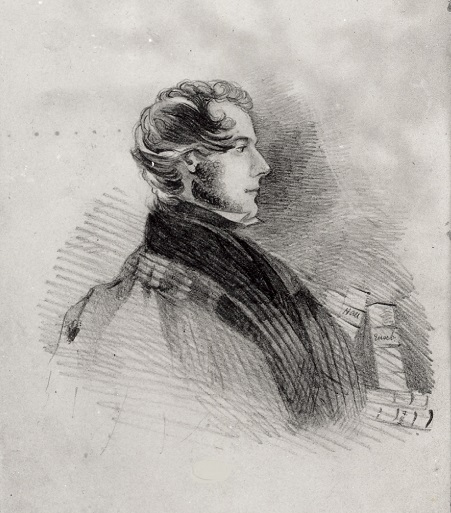
Anne Brontë As A Thinker
Most people live in the present, while some prefer to spend their days thinking of the past (guilty as charged when it comes to the Victorian era) but the greatest thinkers are considering possibilities for the future – and Anne Brontë is a perfect example.
Many writers, especially in the seemingly strict (on the surface at least) nineteenth century, are bound by the conventions and thoughts of the day. Jane Austen, for example, is a writer of the very highest calibre, one I love to read again and again, but she dealt with the marital and courting conventions that she saw and knew. In The Tenant Of Wildfell Hall we can see that Anne was challenging the conventions of her day, and explaining not only what she thought aspects of society should be look, but what they actually would be like one day. She was a visionary writer, which is why her second novel in particular seems so fresh and relevant today.
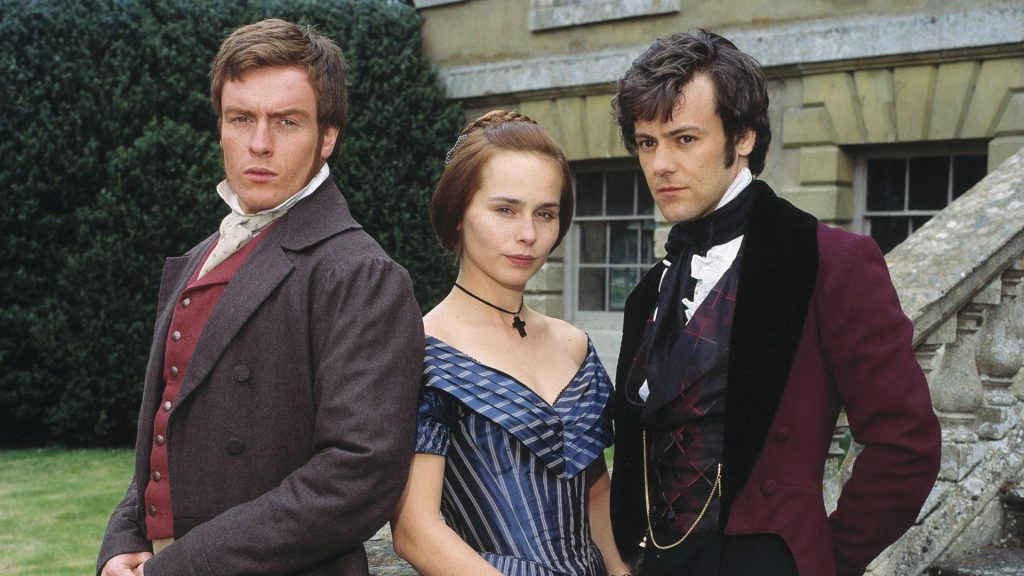
Anne saw through the very strict Calvinist religious dogma prevalent in the church at the time, and foresaw a time when religious tolerance and the idea of a loving deity would prevail. She also saw a time when women would not be the property of their husband, when they would assert their right to their own, independent lives. It is a brilliant, revolutionary book, and her preface to the second edition sets out her manifesto – she would continue to tell the truth as she saw it, thanks to her brilliant mind:
‘My object in writing the following pages was not simply to amuse the Reader, neither was it to gratify my own taste, nor yet to ingratiate myself with the Press and the Public: I wished to tell the truth, for truth always conveys its own moral to those who are able to receive it. But as the priceless treasure too frequently hides at the bottom of a well, it needs some courage to dive for it, especially as he that does so will be likely to incur more scorn and obloquy for the mud and water into which he has ventured to plunge, than thanks for the jewel he procures; as, in like manner, she who undertakes the cleansing of a careless bachelor’s apartment will be liable to more abuse for the dust she raises than commendation for the clearance she effects. Let it not be imagined, however, that I consider myself competent to reform the errors and abuses of society, but only that I would fain contribute my humble quota towards so good an aim, and if I can gain the public ear at all, I would rather whisper a few wholesome truths therein than much soft nonsense… I love to give innocent pleasure. Yet, be it understood, I shall not limit my ambition to this or even to producing a perfect work of art: time and talents so spent, I should consider wasted and mis-applied. Such humble talents as God has given me I will endeavour to put to their greatest use; if I am able to amuse, I will try to benefit too; and when I feel it my duty to speak an unpalatable truth, with the help of God, I will speak it, though it be to the prejudice of my name and to the detriment of my reader’s immediate pleasure as well as my own.’
Anne Brontë As A Human
Anne’s mind was not only brilliant, it was heart and soul driven, it was compassionate. Those who knew her came to know a quiet, gentle, thoughtful and, above all, kind woman. We see this not only from the glowing testimony of people like Ellen Nussey and from her sister Charlotte who called Anne ‘the darling of my life’ but also from a Haworth villager who decades later still remembered the kindness that the youngest Brontë sister showed him, as he told a reporter in 1868: ‘They used to take a great deal of notice of him when he was little; but Miss Annie was his favourite, perhaps because she always paid him so much attention. Baking-day never came round at the parsonage without her remembering to make a little cake or dumpling for him, and she seldom met him without having something good and sweet to bestow on him.’
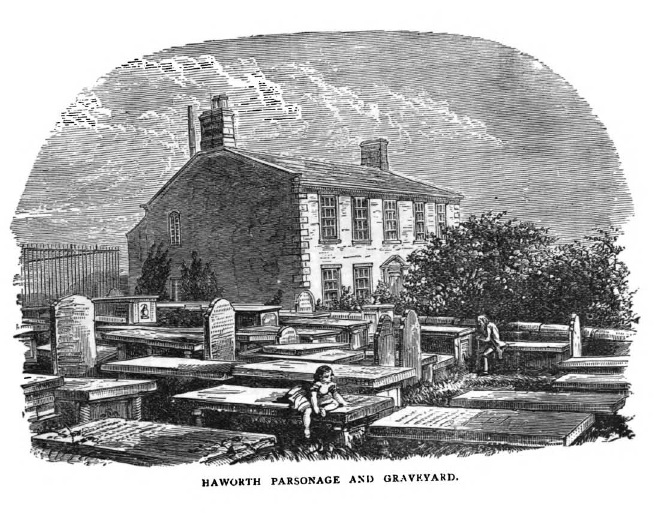
Well, I must go now as I’m heading to that very same parsonage in Haworth for their Anne Brontë celebration – where I hope to partake of a piece of cake myself in her honour. I will also be in Scarborough on Sunday to join the celebratory Anne Brontë parade, so I’ll bring you all a report from that next week. Anne was a brilliant novelist, a brilliant poet, a brilliant thinker and, most importantly of all, a brilliant human being. What more needs to be said? Just one thing – Happy 200th birthday, Anne Brontë!
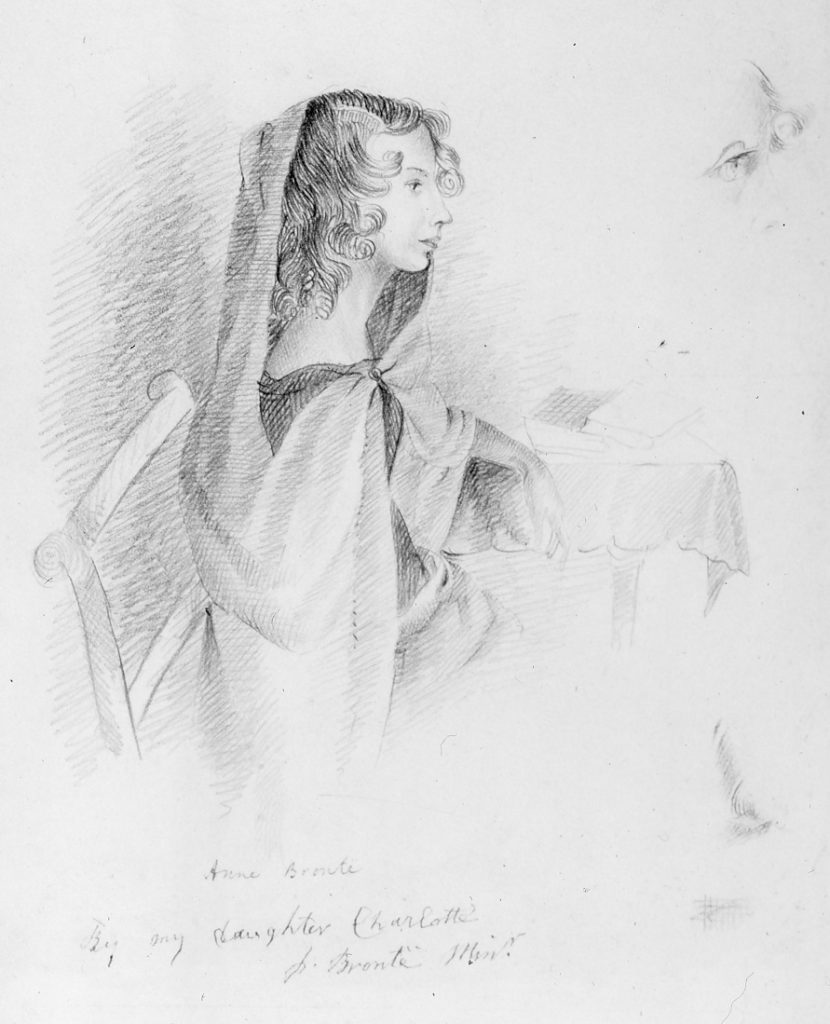
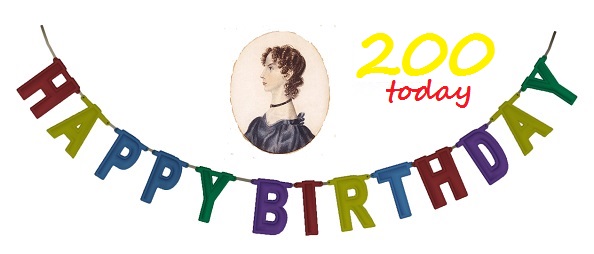
Thanks Nick, lovely blog.
Thank you for a treat of an article! Good to know that Anne is still remembered and cherished today. Thanks for giving us a bit of insight into her life!
Thank you for another lively and heartfelt post from Haworth. Unfortunately, I reside some 3000km from the epicentre Anne celebration.
What I would really welcome ours be some explorations of the people and places which invest Anne’s oeuvre. What I mean is that I would love to have some inkling of what happened to the loathsome Ingham children – to the Robinson’s daughters and the fortune Robinson left behind.
I know that there are scattered references to these people but they are little more than sentence references where I would welcome a ‘deeper dive’ into the Brontë’s Victorian world. I have found that simply knowing the habits of the Brontë household, the state of hygiene in Haworth and the startling incidence of mortality (as portrayed in all of the B novels) has given me a deeper and more enjoyable appreciation of that time in those places.
Anyhow, I’ll light a candle here in Canada’s frozen North to celebrate the birth of that talented writer and her inspirational life. Cheers & all the best of the New Year whoever and wherever you may be today. Mel
Excellent story about Anne Bronte she was perfect in every way kind hearted and a very lovely person I only wished she would have lived much longer and found love
Thank you very much
Terry
Thank you so much. Just settling down with tea and cake to focus in Anne in a quiet moment. This tribute to her helped me articulate why I love her so much too. Looking forward to the arrival of my copy of Crave the Rose.
A wonderful tribute to Anne. Thank you, Nick.
Wonderful points you have made, and the same reasons that I love Anne so much. Her writings were brilliant and insightful, and touched with a humanity that we can all strive to emulate. The very best.
Happy Birthday, Anne! It’s your year!